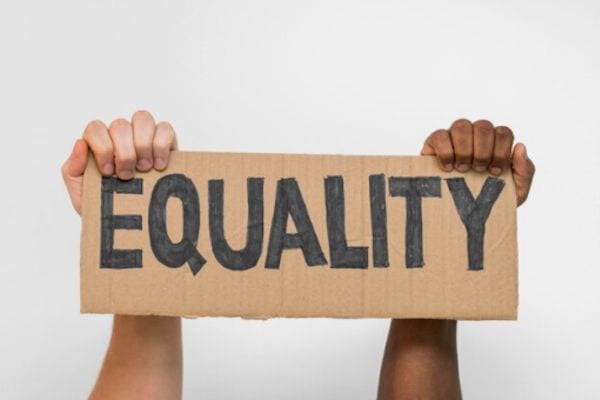
Defining ‘Bossy’
A “bossy” person is pushy, domineering, or too controlling, especially in a leadership or authoritative role. Note, however, that “bossy” is generally used negatively and can be gender-specific, especially when applied to women. Women with assertive or leadership attributes are frequently called “bossy” or “too aggressive,” whereas men with similar traits are called “strong” or “have leadership skills.”
To understand and deal with women’s “bossy” behavior, we need to get rid of biases and realize that being bold, confident, and authoritative are not gender-based traits. Leadership and assertiveness need to be seen more openly and inclusively, regardless of gender.
Stereotypes and Misconceptions of bossy women
Women who are called “bossy” often must deal with unfair and damaging stereotypes and erroneous perceptions. Bossy women are seen as controlling and overbearing. This stereotype suggests that strong women are negative, while assertive men are confident or powerful leaders.
Another false belief is that women who are outspoken or bossy are less likable or approachable. It’s usually the other way around. This could hurt their personal and business relationships because people might judge them unfairly for how they act.
It’s important to combat these false beliefs and stereotypes. We shouldn’t look at confidence and leading skills through the lens of gender. Women can be good leaders, managers, and decision-makers, just like men.
Societal Expectations for bossy women
Gender Roles
A strong woman is always referred to as bossy, if a man did the same behaviour he would be praised.
Throughout history, many societies have stuck to traditional gender roles that were based on their gender. In traditional societies, women were expected to care for and nurture others, while men were expected to provide for their families and be more assertive and powerful.

This double standard is not only unfair but also based on female stereotypes and biases. Women are unfairly affected by it, and it can hurt their jobs. In addition, Because of this, women are held to different standards than men, making the competition less equal.
Workplace Dynamics
Social expectations and biases can affect workplace dynamics, especially how women are treated. Women leaders may confront obstacles since society associates leadership with masculinity. When they demonstrate the same assertiveness as male leaders, female leaders may be called “bossy” or “aggressive”.
Women often must deal with particular problems that force them to go above and beyond to prove their worth. It is often harder for women to get the respect and recognition that their male peers automatically get, even though they are more talented and capable. This usually means working longer hours, taking on more responsibility, and showing repeatedly that they are competent.
From societal expectations to workplace dynamics, some factors can create significant hurdles for women striving to make their mark in the professional world. Organizations must strive towards creating a more equitable and inclusive culture that not only values but also supports women in leadership positions.
MORE POSTS LISTS YOU MIGHT LIKE
- 11 Clever replies if people call you bossy
- How to cut off toxic friends: a clear guide
- Check out our top ten comeback lists
Psychological Perspectives
Psychological studies of “bossy” women can reveal their behavior and the factors that may influence their assertiveness or leadership style. Consider these psychological perspectives:
Perception of Authority
One important thing that often plays a part is how bossy women question traditional gender roles. As time goes on and equality between men and women evolves, however, more and more women are breaking free from these ideals and taking the lead. It can be seen as against social norms for women to act or have traits that are usually associated with men.
Fear of Intimidation
It is disheartening to acknowledge that women who display assertiveness and confidence often face unfair judgments. Rather than being celebrated for their strength, they are sometimes labeled as threatening or aggressive. Authority and confidence are qualities that should be admired and encouraged in both men and women.
By gaining a deeper understanding of these underlying factors, we can cultivate empathy and offer much-needed support to these strong and independent women. We can strive to build more inclusive and equitable workplaces.
Impact on Women who are called bossy
Being called “bossy” can have a big effect on women’s personal and work lives. Unfortunately, the negative emotions that come with being called “bossy” can cause a lot of problems and difficulties.
Professional Challenges
The stigma of being “bossy” keeps women from getting ahead in their careers. Even though they are skilled and able, women often face unfair evaluations and biases that stop them from moving up in their professions. It’s sad to see smart people miss out on promotions and leading positions because of these gender biases.

The label might also make the workplace less friendly. Women may have problems with isolation, stress at work, and business relationships. Women who are seen as “bossy” may have trouble getting help from their bosses and coworkers, which may jeopardize the way they work.
Personal Struggles
One common issue that occurs in personal relationships is the influence of being labeled as “bossy.” This label can strain interpersonal dynamics, sometimes resulting in conflicts and misunderstandings. Women are frequently faced with obstacles that their friends and family may not completely comprehend.
The adjective “bossy” can make women doubt their leadership skills and determine their worth. They might believe the bad stereotype, which can make them feel less confident in themselves.
Dealing with gender bias and being called “bossy” all the time can make women feel more stressed and anxious. Women may find it draining to constantly explain their way of leading or show how smart they are. It can be hard on their emotions for them to feel like they have to fit in with more quiet or submissive norms.
Changing the Narrative ON THE TERM BOSSY
For society to be more open and welcoming, the label “bossy” for women needs to be changed. By fighting assumptions, supporting women in leadership roles, and pushing for gender equality, we can make society more open and fairer so that women can succeed without being judged.
Promoting Equality
Gender equality is essential to changing the “bossy” judgment on women owing to gender bias. This effort challenges long-standing cultural norms, expectations, and prejudices that have limited women’s chances and fostered gender-based discrimination. Here’s how to promote gender equality and combat stereotypes:

1. Giving everyone the same chances to move up and better their careers.
2. Getting equal pay for the same work.
3. Offering a range of flexible work options to meet the needs of all workers.
4. Implementing policies and procedures that avoid discrimination and harassment.
5. Support open communication and the sharing of feedback to deal with issues of equality.
Promoting gender equality is a complex task that needs the combined efforts of people, groups, and society.
Empowering Women
For women to have the same rights, chances, and roles in life as men, they need to be constantly empowered. This is very important for women’s rights and the growth of society, the economy, and the government. Here are ways to empower women:
- Providing mentoring and coaching classes to help women become better leaders.
- Getting women to take on difficult tasks and projects.
- Making a network of female coworkers who can help and encourage each other.
- Conducting training and development programs to aid in the development of women’s self-assurance and confidence.
When we empower women, everyone wins! It’s not just about benefiting women, but also about creating a better society for all. Let’s make the world fairer and more inclusive by identifying and eliminating obstacles that hinder women’s progress.
To change how we think about bossy women, we need everyone to work together. Promoting equality and giving women more power makes our workplace friendlier and more open to everyone. This means that all workers should be valued, no matter what gender they are or what other traits they have.
The Role of counselling and self care
I Should Have Said Media will earn a commission after clicking links on this page at no additional cost to you. Learn more.
When you are dealing with people calling you bossy it can be stressful, consider getting support from a professional. Talking to a counsellor is a great way to work through a challenging situation, and help you find some strategies to work through the person’s behaviour.
Better Help is a great resource where you can talk to a counselor from the comfort of your own home.
Taking care of your own needs isn’t selfish, and you will feel better in the long run.








